Looking for Expert-Level VA Claim Answers?📱Call Us Now! 737-295-2226
In this post, we’ll answer the question: “Who is eligible for VA benefits?”
The Department of Veterans Affairs (the steward of VA benefits) exists for veterans and because of veterans.
And there’s a whole list of great VA benefits available to eligible veterans.
But who qualifies for VA benefits?
Generally, any veteran who was separated or retired under conditions other than dishonorable (e.g., Honorable, Other Than Honorable, General) and served time on active duty military orders qualifies for VA benefits, including National Guard and Reserve members.
VA benefits eligibility largely depends on your “Veteran Status” as determined by your DD 214—meaning—character of service, length of service, service commitment, and the number of days spent on active duty orders.
Okay, let’s explore how the VA determines your veteran status and who is eligible for VA benefits by law.
I’ll also reveal and explain who is not eligible for VA benefits as well as statutory (federal law) and regulatory (VA regulations) bars to benefits.
You Might Also Like the Following Blog Posts:
- What is a Veteran? Here’s How the VA Defines “Veteran”
- 8 Best VA Benefits for National Guard and Reserve Members
- VA Disability Claims That Cannot Be Proven: The Truth Revealed
Table of Contents
Veteran Benefits Eligibility
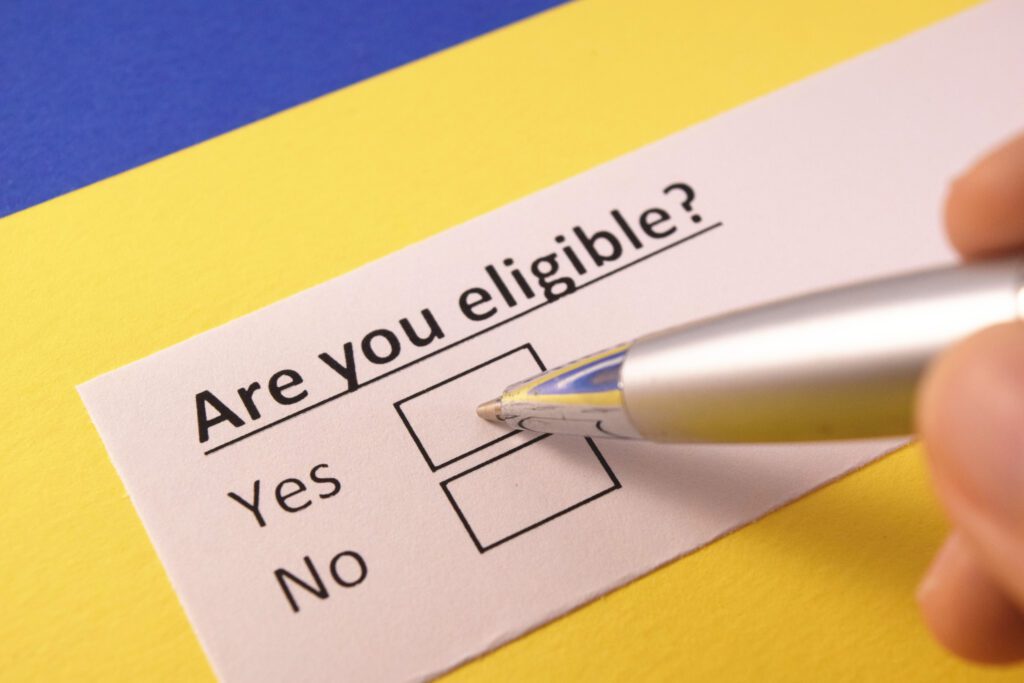
Any veteran who (#1) Was separated or retired under conditions other than dishonorable (e.g., Honorable, Other Than Honorable, General) and (#2) Served time on active duty military orders, is eligible for VA benefits, including National Guard and Reserve members.
A veteran who received a dishonorable discharge, or a discharge under conditions for which a statutory bar to VA benefits exists (more on that below) is ineligible for all VA benefits for any claim based on that period of service.
Exception: A dishonorable discharge or statutory bar is not binding if it is determined that the individual was “insane” when committing the acts that resulted in the discharge.
Who Does NOT Qualify for VA Benefits?
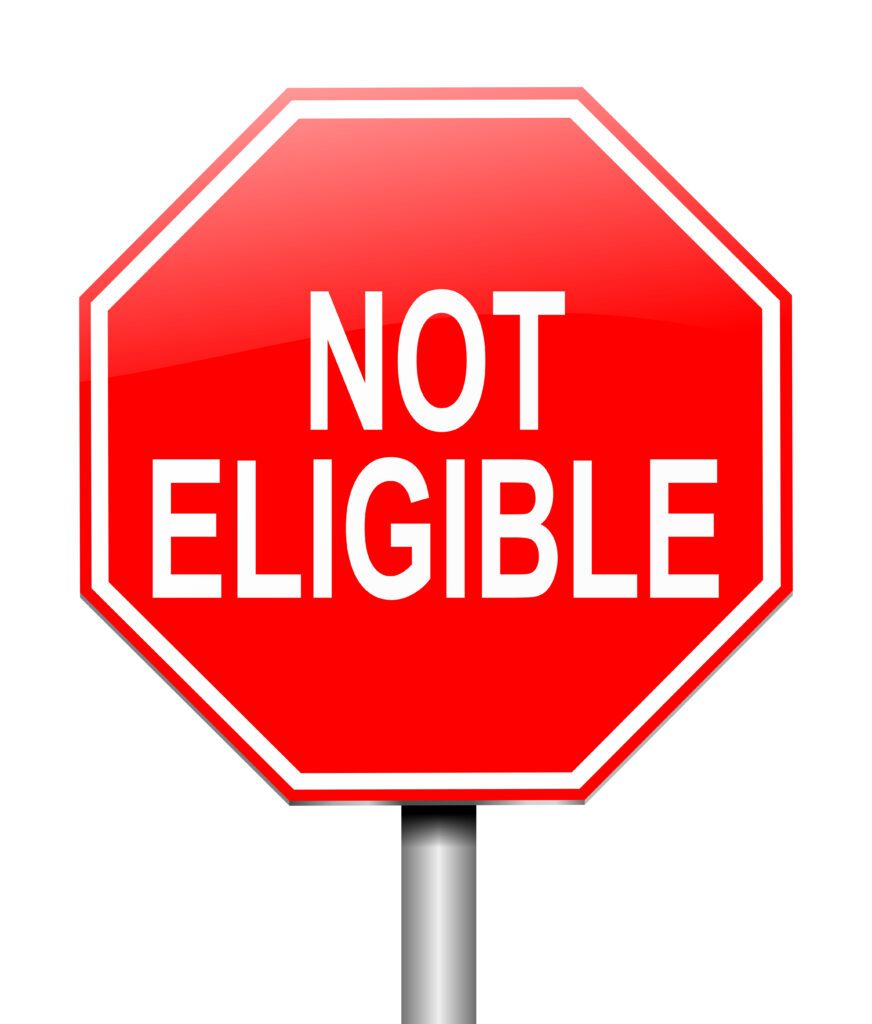
There are 11 categories of veterans who do not qualify for VA benefits:
- You did not serve any time on active duty military orders.
- You have a “Dishonorable” Discharge that hasn’t been upgraded.
- You have a “Bad Conduct” Discharge that hasn’t been upgraded.
- You have an “Other Than Honorable” Discharge that hasn’t been upgraded.
- You have a VA disability that is due to your own willful misconduct.
- You were a conscientious objector who refused to perform military duty, wear the uniform, or comply with lawful orders of competent military authorities.
- You received a sentence of a General Court-Martial (GCM).
- You were discharged under “resignation by an officer for the good of the service.”
- You were discharged for “desertion.”
- You were found to be an alien during a period of hostilities.
- You were Absent Without Official Leave (AWOL) for a continuous period of at least 180 days.
What is a “Veteran Status” Determination?
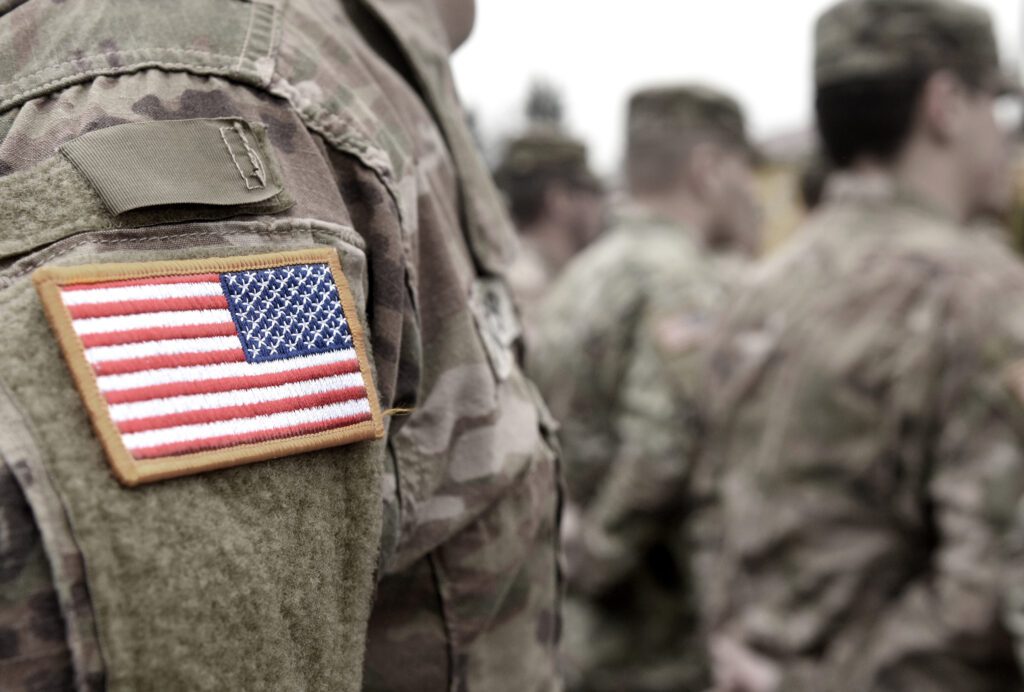
VA benefits eligibility depends on a “Veteran Status” determination made by the VA, including character of service, length of service, service commitment, and the number of days spent on active duty orders.
This is especially important for National Guard and Reserve VA benefits.
Click HERE to review M21-1, Establishing Veteran Status, to review the entire decision matrix used by VA Raters to determine VA benefits eligibility.
Veteran status is defined by federal law as a person who: (#1) Served in the active military, naval, or air service and (#2) Was discharged or released under conditions other than dishonorable.
- For VA disability compensation and Dependency and Indemnity Compensation (DIC) the term “veteran” includes a person who died in active service and whose death was not due to the veteran’s own willful misconduct.
- For VA death pension the term “veteran” includes a person who died in active service under conditions which preclude payment of service-connected death benefits, provided such person had completed at least 2 years honorable military, naval or air service, as certified by the Secretary concerned.
What is “Qualifying Service” for VA Benefits?

Qualifying service is any type of service that qualifies or potentially qualifies a claimant for VA benefits.
Types of qualifying service are listed in 38 CFR 3.6 and 38 CFR 3.7 and include, but are not limited to:
- Active duty military service.
- ADT when a claim for service connection (SC) is based on a disability or death resulting from a disease or injury incurred or aggravated in the line of duty, and
- IADT when a claim for SC is based on disability or death resulting from an injury incurred or aggravated in the line of duty or myocardial infarction, cardiac arrest, or a cerebrovascular accident which occurred during such training.
What is a “Character of Discharge (COD) Determination?”
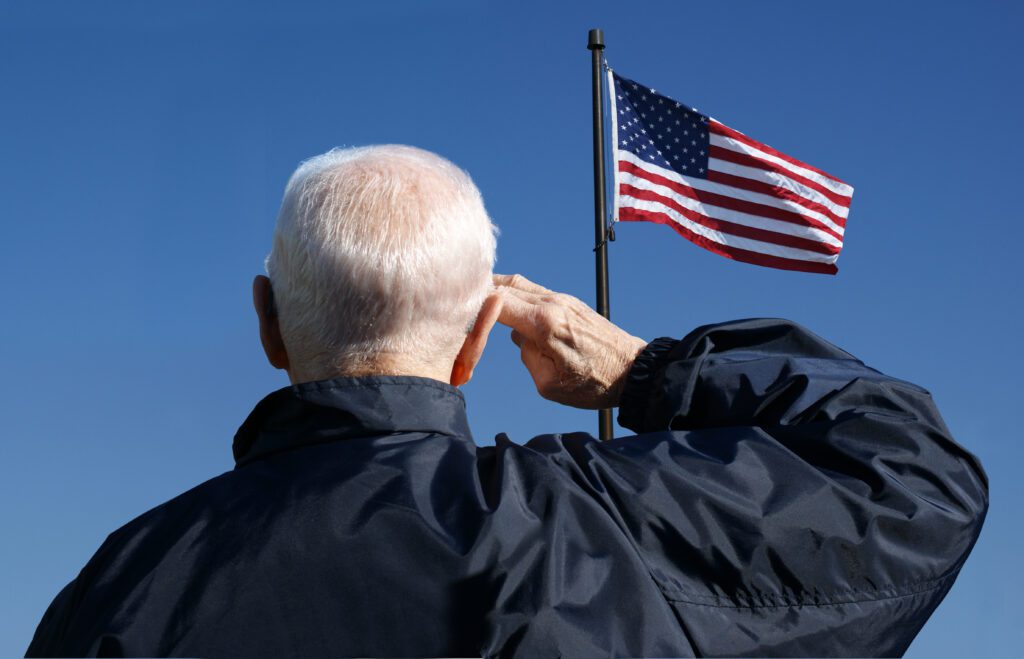
It’s important to note that all veterans can still apply for VA benefits regardless of their discharge status.
However, the VA is required to make a Character of Discharge (COD) determination if the veteran received:
- An Undesirable discharge.
- An Other Than Honorable (OTH) discharge, or
- A Bad Conduct discharge (BCD).
Important: Before VA Raters issue a COD determination, they must review:
- The instructions for determining Veteran status in M21-1, Part III, Subpart i, 1.A, and
- The definition of Veteran in 38 CFR 3.1(d).
Reference: For more detailed information about how the VA prepares COD determinations, see M21-1, Part X, Subpart iv, 1.A.1.l.
Pro Tip: You can ask for a VA discharge upgrade, which is called a Character of Discharge (COD) review, at the same time you apply for a discharge upgrade from your branch of the military.
How Do I Upgrade My Military Discharge Status?

Each branch of the military has its own process for discharge upgrades.
The good news is you can now file for a military discharge upgrade online by answering a few questions.
All branches of the military consider you to have a solid case for a discharge upgrade if you can show your discharge was connected to:
- Any mental health conditions, including Post Traumatic Stress Disorder (PTSD)
- Military Sexual Trauma (MST), which includes Sexual Assault or Sexual Harassment
- Sexual orientation (including Transgender and discharge under the military’s previous Don’t Ask, Don’t Tell policy).
What is a “Statutory Bar” to VA Benefits?

A statutory bar to VA benefits exists when the VA determines a veteran’s discharge or release was under any of the conditions discussed in 38 U.S.C. 5303 and listed in 38 CFR 3.12(c).
Some of these conditions include:
- A conscientious objector who refused to perform military duty, wear the uniform, or comply with lawful orders of competent military authorities.
- Sentence of a General Court-Martial (GCM).
- Resignation by an officer for the good of the service.
- An alien during a period of hostilities.
- Absence without official leave (AWOL) for a continuous period of at least 180 days, and
- Desertion.
What is a “Regulatory Bar” to VA Benefits?
A regulatory bar to VA benefits is established any time the VA determines a veteran’s discharge or release was issued under any of the conditions listed in 38 CFR 3.12 (d).
Some examples of discharges under 38 CFR 3.12 (d) include:
- Mutiny or spying, and
- Undesirable discharge to escape trial by GCM.
What are the Best VA Benefits for Veterans?
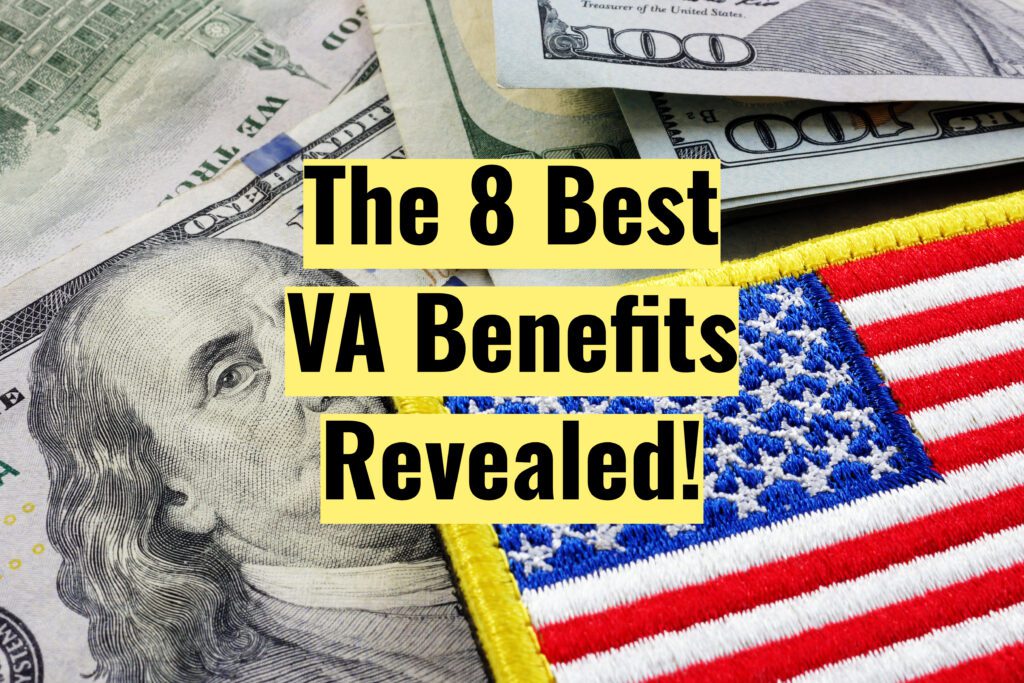
While there are many great VA benefits for veterans, here’s a list of our top 8:
#1. VA Disability Compensation Benefits
VA Disability Compensation is a monthly tax-free benefit paid to eligible veterans who are at least 10% disabled because of injuries or diseases that were caused or made worse during active duty military service or active duty for training.
The VA will pay monthly benefits to separated or retired veterans for disabilities from disease or injury incurred or aggravated during active duty service and active duty for training, and for disabilities from injury incurred or aggravated during inactive duty for training (formerly known as “Battle Assembly”) for National Guard and Reserve members.
Pro Tip: If you’ve been out of the military for more than 12 months, it’s highly recommended that you get a Nexus Letter from a private doctor to help you prove to the VA how your disability is connected to your military service. WE CAN HELP! VA Claims Insider Elite members get reduced rates on Nexus Letters for a wide range of conditions. And you can start today. Our terms are simple: If we don’t win, you don’t pay.
#2. VA Pension Benefits
VA Pension is a tax-free monetary benefit paid to eligible veterans with limited income and net worth who served during a wartime period (see complete list of recognized wartime periods HERE).
Generally, veterans must have 90 days or 24 months of active service (depending on when you served) to qualify for VA pension benefits.
Pro Tip: By law, you can’t receive pension benefits and disability compensation benefits at the same time. If you do qualify for both, most veterans are better off taking disability compensation versus pension benefits since monthly payment rates for pension benefits tend to be lower than those for disability compensation benefits.
#3. VA Home Loan Benefits
VA Home Loan Benefits, also known as a “Home Loan Guaranty,” allows eligible veterans to get residential home loans with more favorable terms.
Private lenders provide the loan, but the VA guarantees a portion of it, allowing lenders to provide benefits such as no down payment or mortgage insurance premiums.
To qualify for a VA home loan, you must meet at least one of the following conditions:
- Served for 90 days or more on active duty during a wartime period, or
- Were discharged or released from active duty for a service-connected disability, or
- Have six years of service in the Selected Reserve or National Guard, and
- Were discharged honorably, or
- Were placed on the retired list, or
- Were transferred to the Standby Reserve or an element of the Ready Reserve other than the Selected Reserve after honorable service, or
- Continue to serve in the Selected Reserve.
Pro Tip: If you have a VA disability rating of 10% or higher, you qualify for the VA Funding Fee Waiver, which could potentially save you thousands of dollars or more on your home. Make sure to get a copy of your VA COE Form during the VA loan application process.
#4. VA Education Benefits
VA Education Benefits provide valuable education and training options for eligible veterans, including financial support for undergraduate and graduate degrees, vocational and technical training, licensing and certification tests, apprenticeships, and on-the-job training.
What about the granddaddy of all VA education benefits?
Awe yes, that would be the G.I. Bill.
If you were discharged with a service-connected disability, you’re going to get the full G.I. Bill benefit.
Otherwise, how much money you get will depend on how long you served on active duty.
You must at least have 90 days of active duty service since September 10, 2001, in which case the VA will pay for half of your tuition (or up to half of that capped amount).
Length of Active Duty Service vs. Amount of VA G.I. Bill Benefit Awarded:
- 90 days = 50% of the maximum benefit
- 6 months = 60% of the maximum benefit
- 18 months = 70% of the maximum benefit
- 24 months = 80% of the maximum benefit
- 30 months = 90% of the maximum benefit
- 36 months = 100% of the maximum benefit
Pro Tip: The VA website introduced a brand new tool called the G.I. Bill Comparison Tool. You just enter your current military status, which benefit you want to use, your amount of cumulative active service, and the school you want to attend. The calculator will then spit out how much money the VA will give you for tuition, housing, and books. Alternatively, you can type in a location, and the calculator will tell you how much the VA will cover for every school in the area! Access the tool for FREE here: https://www.va.gov/gi-bill-comparison-tool
#5. VA Healthcare Benefits
VA Healthcare Benefits provide eligible veterans with high-quality medical care at VA locations worldwide.
The VA healthcare system is the largest healthcare provider in the world; it’s also the largest provider of telemedicine & virtual services in the world!
Almost all veterans qualify for some type of healthcare benefit, but it won’t always be completely free.
Generally, if you served either 24 continuous months or the full period for which you were called to active duty, and you did not receive a dishonorable discharge, you are eligible for some amount of VA healthcare coverage. (That being said, if you were discharged due to a service-connected disability or for a hardship, or if you served prior to September 7, 1980, you actually don’t have to meet the minimum active duty requirement.)
If you have service-connected disabilities, you will certainly receive free care for those specific injuries or illnesses.
The VA assigns “priority groups” with a number between 1 and 8, which determines your eligibility, co-pays (if any), and priority of receiving healthcare.
Click HERE to read more about VA priority groups.
Do all veterans get free VA medical benefits?
No, all veterans do not get free VA healthcare benefits.
However, most veterans are eligible for some amount of VA healthcare coverage.
The magic number to receive completely FREE VA healthcare for veterans, without any co-pays, is to have a disability rating of at least 50 percent (although free care is also sometimes provided for those veterans who can’t afford care otherwise).
#6. VA Life Insurance Benefits
VA Life Insurance programs provide financial security and peace of mind to veterans and their families, especially considering the risks involved in military service.
Eligible servicemembers and veterans pay relatively low monthly premiums for life insurance coverage, which can vary by insurance program.
What are the 6 Best VA Life Insurance Programs for Veterans?
- Servicemembers’ Group Life Insurance (SGLI) allows military members to get group life insurance while you’re serving on active duty. You may be eligible for full-time SGLI coverage if you meet at least one of these requirements. At least one of these must be true: You’re an active-duty member of the Army, Navy, Air Force, Marines, or Coast Guard, or You’re a commissioned member of the National Oceanic and Atmospheric Administration (NOAA) or the U.S. Public Health Service (USPHS), or You’re a cadet or midshipman of the U.S. military academies, or You’re a member, cadet, or midshipman of the Reserve Officers Training Corps (ROTC) engaged in authorized training and practice cruises, or You’re a member of the Ready Reserve or National Guard, assigned to a unit, and scheduled to perform at least 12 periods of inactive training per year, or You’re a volunteer in an Individual Ready Reserve (IRR) mobilization category.
- Veterans’ Group Life Insurance (VGLI) is available to service members who are separating, retiring, or being released from assignment from the Ready Reserve, or a National Guard member who was covered by SGLI, OR to members of the National Guard or Reserve covered by part-time SGLI who incurred or aggravated a disability while performing inactive duty or traveling to/from duty, OR to members of the Individual Ready Reserve or Inactive National Guard.
- Family Servicemembers’ Group Life Insurance (FSGLI) is available to the spouses and dependent children of members of the Ready Reserve or National Guard of a uniformed service covered by full-time SGLI. FSGLI is a service members’ benefit and therefore is the only one allowed to be beneficiary. Coverage is terminated on separate from service, divorce, death of the service member or if the service member elects to cancel the coverage.
- SGLI Traumatic Injury Protection (TSGLI) helps severely injured National Guard and Reserve members and their families with the financial burdens associated with recovery by providing a one-time payment to Servicemembers or Veterans who incur traumatic injuries (on or off duty) and suffer losses that qualify for payment under TSGLI.
- Service-Disabled Veterans’ Insurance (S-DVI) provides life insurance coverage to National Guard or Reserve members or Veterans who incurred a service-connected disability while in an active duty status. Applications must be submitted within two years from the date of notification of approval for a new service-connected disability by the VA. This is only for those Veterans discharged on or after April 25, 1951.
- Veterans Mortgage Life Insurance (VMLI) provides mortgage life insurance to severely disabled National Guard or Reserve members or veterans who incurred a service-connected disability while in an active duty status and received a Specially Adapted Housing (SAH) grant from VA.
#7. VA Employment and Job Training Benefits (“Voc Rehab” or Chapter 31 Benefits)
The VA’s “Voc Rehab” Program provides education and training services, including vocational counseling and job-search assistance to National Guard and Reserve members with service-connected disabilities.
If you have a service-connected disability that limits your ability to work or prevents you from working, Veteran Readiness and Employment (formerly called Vocational Rehabilitation and Employment) can help.
You may be eligible for Voc Rehab assistance in preparing for, obtaining, and maintaining suitable employment through VR&E if you are:
- A veteran with a service-connected disability rated at 10% or more, OR
- Hospitalized or receiving outpatient medical care, services, or treatment for a service-connected disability pending discharge from active duty, OR
- Severely ill or injured and have been referred to a military Physical Evaluation Board (PEB) or are participating in the DoD/VA Integrated Disability Evaluation System (IDES) process.
You may also qualify for career counseling if you recently separated from the military or are using VA education benefits.
#8. VA Burial Benefits
VA Burial Benefits provides burial and memorial services to honor our Nation’s deceased veterans.
Eligibility for VA Burial Benefits requires a veteran, National Guard, or Reserve member to have served on active duty, or that your death was due to an injury or disease that developed or was aggravated during active duty, active duty for training, or inactive duty for training.
The National Cemetery Administration offers veterans a gravesite in any of the national cemeteries with available space, opening and closing of the grave, perpetual care, a Government headstone or marker, a burial flag, and a Presidential Memorial Certificate, at no cost to the family of the deceased veteran.
Some veterans may also be eligible for VA Burial Allowances.
Burial benefits available for spouses and dependents buried in a national cemetery include burial with the Veteran, perpetual care, and the spouse or dependents name and date of birth and death will be inscribed on the Veteran’s headstone, at no cost to the family.
Eligible spouses and dependents may be buried, even if they predecease the Veteran.
Here’s a list of the 5 VA Burial Benefits for Veterans:
- VA can furnish an inscribed headstone or marker at any cemetery, or a medallion in lieu of a headstone, or marker to affix to one that is privately purchased.
- VA can provide a burial and/or plot allowance to partially reimburse the burial and funeral costs of a veteran.
- VA can provide a Presidential Memorial Certificate (PMC) for the next of kin and loved ones of a deceased veteran.
- VA can provide an American flag to drape the casket of a veteran.
- A Veteran and his or her dependents can be buried in a VA national cemetery.
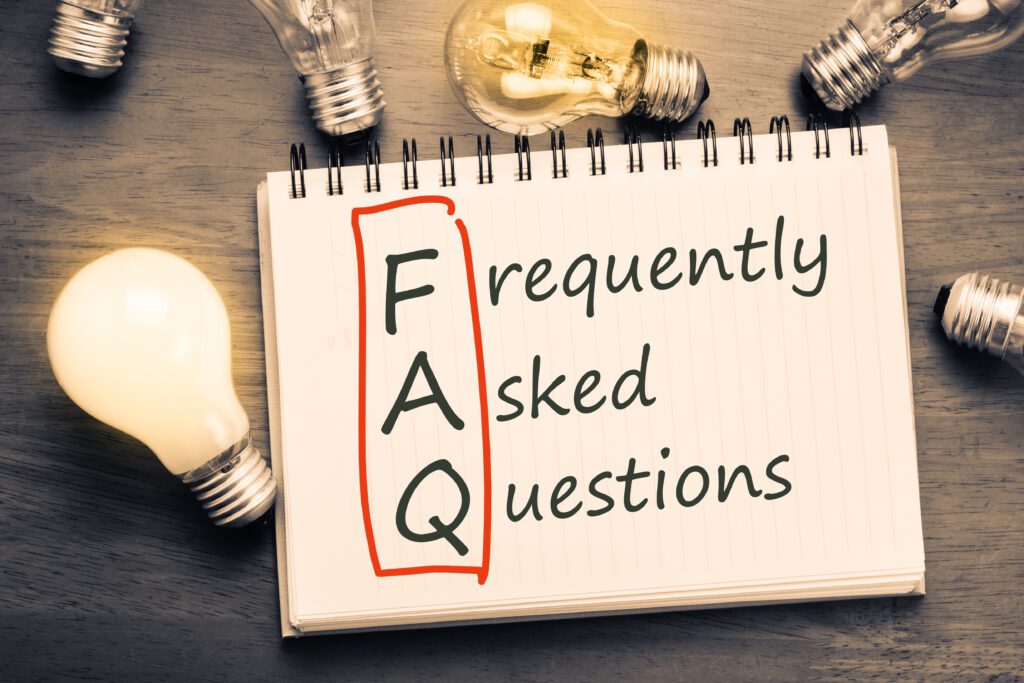
(FAQs) Frequently Asked Questions
Do all veterans get benefits?
Yes, generally, all veterans qualify for some amount of VA benefits.
However, the type and amount of VA benefits varies from veteran to veteran depending on many factors.
Any veteran who was separated or retired under conditions other than dishonorable (e.g., Honorable, Other Than Honorable, General) and served time on active duty military orders, qualifies for VA benefits.
Different VA benefits consider different factors to determine your eligibility, such as length of service, type of service (such as under Title 10 or Title 32), wartime service, and/or service-related disability.
Do all veterans get free healthcare?
No, all veterans do not get free healthcare.
Only veterans with a VA disability rating of 50% or higher get completely free healthcare through the VA.
Do you deserve a VA rating increase?
If yes, join VA Claims Insider Elite, talk to a VA claim expert now, and get started today.
Do all veterans get a death benefit?
Yes, most veterans qualify for a death benefit from the VA; however, the benefit amount depends on whether the death was “service-related.”
If the veteran’s death was service-related:
The VA will pay up to $2,000 toward burial expenses for deaths on or after September 11, 2001, or up to $1,500 for deaths prior to September 11, 2001.
If the veteran is buried in a VA national cemetery, some, or all of the cost of transporting the deceased may be reimbursed.
If the veteran’s death was non-service-related:
The VA will pay up to $796 toward burial and funeral expenses for deaths on or after October 1, 2019 (if hospitalized by VA at time of death), or $300 toward burial and funeral expenses (if not hospitalized by VA at time of death), and a $796 plot-interment allowance (if not buried in a national cemetery).
For deaths on or after December 1, 2001, but before October 1, 2011, VA will pay up to $300 toward burial and funeral expenses and a $300 plot-interment allowance.
For deaths on or after April 1, 1988, but before October 1, 2011, VA will pay $300 toward burial and funeral expenses (for veterans hospitalized by the VA at the time of death).
What veterans are not eligible for VA healthcare?
Veterans who received a “dishonorable” discharge are not eligible for VA healthcare benefits unless the discharge has been upgraded.
All other veterans are eligible for some type of VA healthcare benefit, although the actual benefit and amount covered depends on your priority grouping.
Do veterans get free healthcare for life?
No, all veterans do not get free VA healthcare benefits for life.
However, most veterans are eligible for some amount of VA healthcare coverage depending on their priority grouping assignment.
Some veterans do get free VA healthcare for life: To receive totally FREE VA healthcare benefits for veterans, without any co-pays, is to have a VA disability rating of at least 50% (although free care is also sometimes provided for those veterans who can’t afford care otherwise).
What is the difference between military medical retirement and VA disability?
Generally, veterans can’t receive monthly monetary benefits for both DoD Disability (military medical retirement) and VA Disability.
Instead, whatever money is received from the VA is subtracted from the monetary amount given by the DoD (for both disability retirement and regular military retirement).
The basic formula works like this: If the veteran receives $400/month from the DoD and then starts receiving $300/month from the VA, the payment from the DoD would decrease to $100 ($400 – $300 = $100).
Here’s the deal: This is a good thing for veterans because DoD military money is taxable, but VA money is NOT.
So, the taxable money is being replaced by non-taxable money—I’d call that a win!
However, there are some nuances to this, including receipt of Concurrent Retirement and Disability Pay (CRDP) and Combat Related Special Compensation (CRSC).
Can I get medical retirement and VA disability?
No, you can’t receive the full benefit of medical retirement and VA disability at the same time.
Rather, there’s a formula that subtracts your VA benefit amount from your DoD benefit amount.
YOU SERVED. YOU DESERVE. We Got Your Six!
- VA Claims Insider is the #1 most trusted name in VA disability claims.
- Work directly with a VA claims coach who can help lead you to VA claim victory.
- 25,000+ disabled veterans served in our membership programs since 2016.
- 4.7/5.0 average rating out of 5,500+ total reviews; over 4,500 5-star reviews.
About the Author

Brian Reese
Brian Reese is a world-renowned VA disability benefits expert and the #1 bestselling author of VA Claim Secrets and You Deserve It. Motivated by his own frustration with the VA claim process, Brian founded VA Claims Insider to help disabled veterans secure their VA disability compensation faster, regardless of their past struggles with the VA. Since 2013, he has positively impacted the lives of over 10 million military, veterans, and their families.
A former active-duty Air Force officer, Brian has extensive experience leading diverse teams in challenging international environments, including a combat tour in Afghanistan in 2011 supporting Operation ENDURING FREEDOM.
Brian is a Distinguished Graduate of Management from the United States Air Force Academy and earned his MBA from Oklahoma State University’s Spears School of Business, where he was a National Honor Scholar, ranking in the top 1% of his class.



